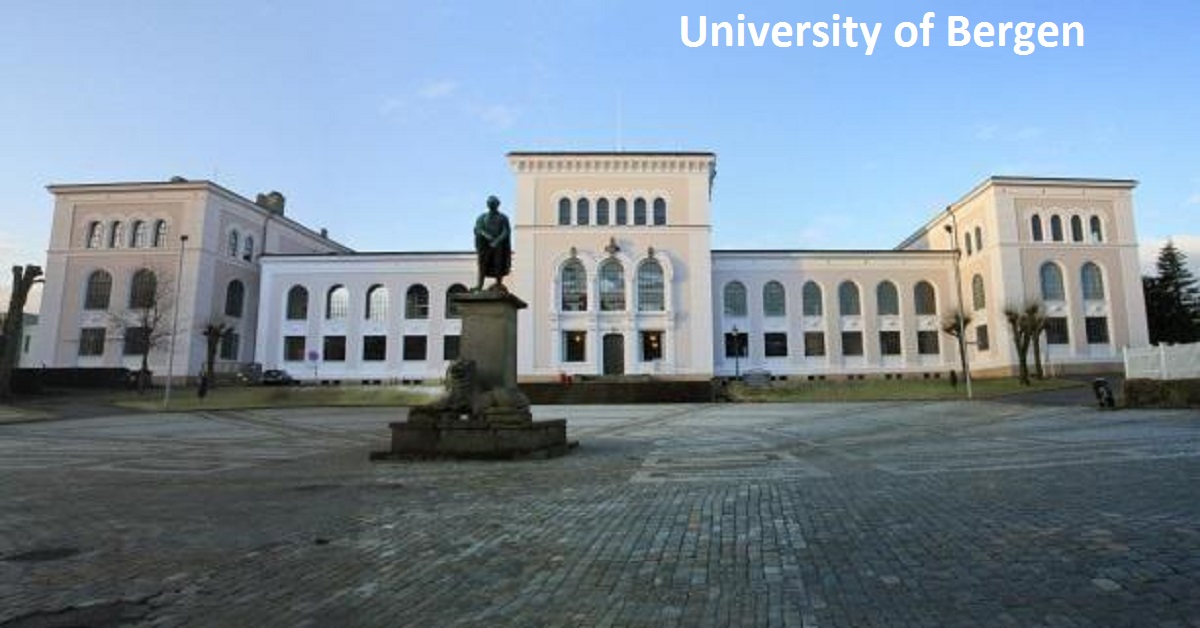
UiB – Knowledge that shapes society
Through robust and close interaction with the world around us – globally, nationally and locally – we shall be instrumental in building a society based on knowledge, skills and attitudes.
Do you want to take part in shaping the future?
https://youtube.com/watch?v=oyaThmIq6Kg%3Fautoplay%3D0%26modestbranding%3D1%26playsinline%3D0%26rel%3D0%26start%3D0%26enablejsapi%3D1%26origin%3Dhttps%253A%252F%252Fwww.jobbnorge.no%26widgetid%3D1
Researcher
There is a vacancy for a position at the Geophysical Institute, as researcher in Earth System Model Prediction, focused on the coupling between climate and ocean biogeochemistry/marine ecosystems of the tropical and South Atlantic. The position is for a period of 2 years and is associated with the EU H2020 project TRIATLAS “Tropical and South Atlantic- climate-based marine ecosystem prediction for sustainable management”.
About the project/work tasks
TRIALTAS is a very strong international and interdisciplinary project with 33 partners from 13 nations in Europe, African and South America. It will deliver improved understanding of current state and future change of the marine ecosystem in the tropical and South Atlantic. It aims to develop the first climate-based marine ecosystem predictions for this region, and to work with local stakeholders to improve sustainable exploitation of ecosystem services.
The researcher position will be dedicated to investigate the potential to predict marine ecosystem shifts on seasonal to decadal timescales using Earth System and marine ecosystem models. The researcher will use the state-of-the-art Norwegian Climate Prediction Model (NorCPM) including the biogeochemical model HAMOCC (the Hamburg Ocean Carbon Cycle Model) and a marine ecosystem model. This may be complemented by analysis of existing simulations from the FishMIP database. The researcher will be expected to develop interdisciplinary collaborations with scientists within the project from different backgrounds (e.g., physical oceanography, marine biology, fisheries, and social science).
Qualifications and personal qualities:
- Applicants must hold a Norwegian PhD or an equivalent degree within climate science, oceanography, meteorology, biogeochemical/biological oceanography, or other relevant fields.
- Strong background in Earth system dynamics, including marine physical-biolgical interactions is a requirement.
- Experience in performing Earth System Model (ESM) simulations on high-performance computers is a requirement.
- Experience in programming in Fortran, MATLAB, Python, or other similar computer languages is highly advantageous.
- Experience in handling and analysing large ESM datasets is a requirement.
- Good understanding of tropical climate, particularly related to the Atlantic, is an advantage.
- Highly advantageous is experience in working with NorESM/NorCPM, ocean component of NorESM, MICOM and/or biogeochemical component of NorESM, HAMOCC; and also knowledge of marine ecosystem models.
- It is an advantage to have experience in climate prediction.
- Applicants must be able to work independently and in a structured manner and be willing to work collaboratively with scientists from different disciplinary backgrounds within the project.
- Applicants must have good skills in oral and written English.
Personal and relational qualities will be emphasized. Research experience, ambitions and potential will also count when evaluating the candidates.
We can offer:
- A good and professionally stimulating working environment.
- Salary at pay grade 62 (code 1109 / pay range 24, alternative 6) according to the state salary scale upon appointment. This constitutes a gross annual salary of NOK 573 900. For particularly highly qualified applicants, a higher salary may be considered. Further promotions are made according to length of service.
- Enrolment in the Norwegian Public Service Pension Fund
- Good welfare benefits
Your application must include:
- A brief account of the applicant’s research interests and motivation for applying for the position.
- The names and contact information for two referees. One of these should be the main advisor from the PhD programme
- CV
- Transcripts and diplomas
- Relevant certificates/references
- List of any works of a scientific nature (publication list)
- Publications (as applicable)
The application and appendices with certified translations into English or a Scandinavian language must be uploaded at JobbNorge.
General information:
For further details about the position, please contact: Professor Noel Keenlyside, Geophysical Institute tel: +47 55 582032, e-mail: noel.keenlyside@uib.no
The state labour force shall reflect the diversity of Norwegian society to the greatest extent possible. Age and gender balance among employees is therefore a goal. People with immigrant backgrounds and people with disabilities are encouraged to apply for the position.
We encourage women to apply. If multiple applicants have approximately equivalent qualifications, the rules pertaining to moderate gender quotas shall apply.
The University of Bergen applies the principle of public access to information when recruiting staff for academic positions.
Information about applicants may be made public even if the applicant has asked not to be named on the list of persons who have applied. The applicant must be notified if the request to be omitted is not met.
For further information about the recruitment process, click here.
About The University of Bergen
The University of Bergen is a renowned educational and research institution, organised into seven faculties and approximately 54 institutes and academic centres. Campus is located in the centre of Bergen with university areas at Nygårdshøyden, Haukeland, Marineholmen, Møllendalsveien and Årstad.
There are seven departments and several centres at Faculty of Mathematics and Natural Sciences. Read more about the faculty and departments.





